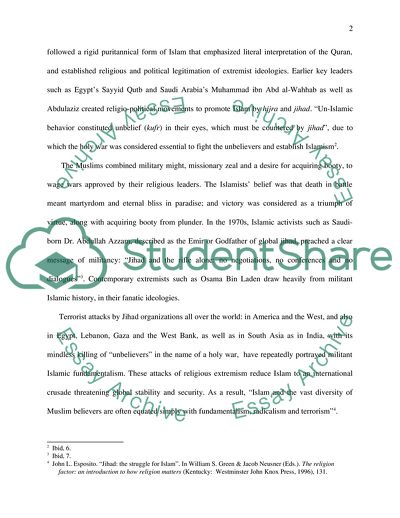Cite this document
(Jihad and the Developing World Essay Example | Topics and Well Written Essays - 1250 words, n.d.)
Jihad and the Developing World Essay Example | Topics and Well Written Essays - 1250 words. https://studentshare.org/religion-and-theology/1716140-jihad-and-the-developing-world
Jihad and the Developing World Essay Example | Topics and Well Written Essays - 1250 words. https://studentshare.org/religion-and-theology/1716140-jihad-and-the-developing-world
(Jihad and the Developing World Essay Example | Topics and Well Written Essays - 1250 Words)
Jihad and the Developing World Essay Example | Topics and Well Written Essays - 1250 Words. https://studentshare.org/religion-and-theology/1716140-jihad-and-the-developing-world.
Jihad and the Developing World Essay Example | Topics and Well Written Essays - 1250 Words. https://studentshare.org/religion-and-theology/1716140-jihad-and-the-developing-world.
“Jihad and the Developing World Essay Example | Topics and Well Written Essays - 1250 Words”. https://studentshare.org/religion-and-theology/1716140-jihad-and-the-developing-world.


